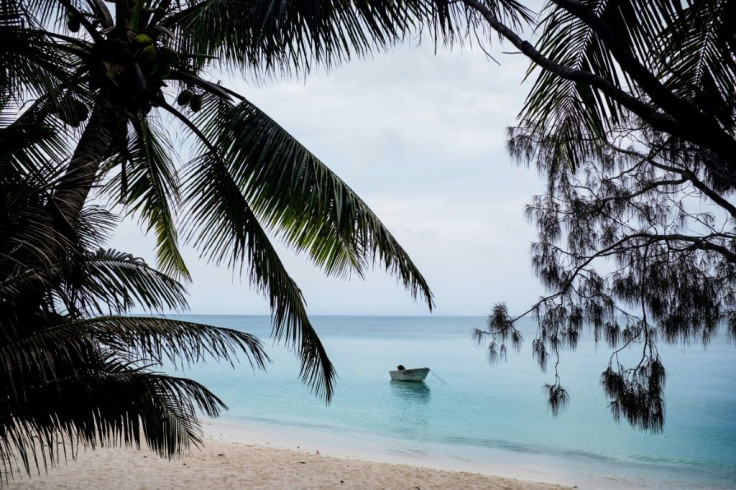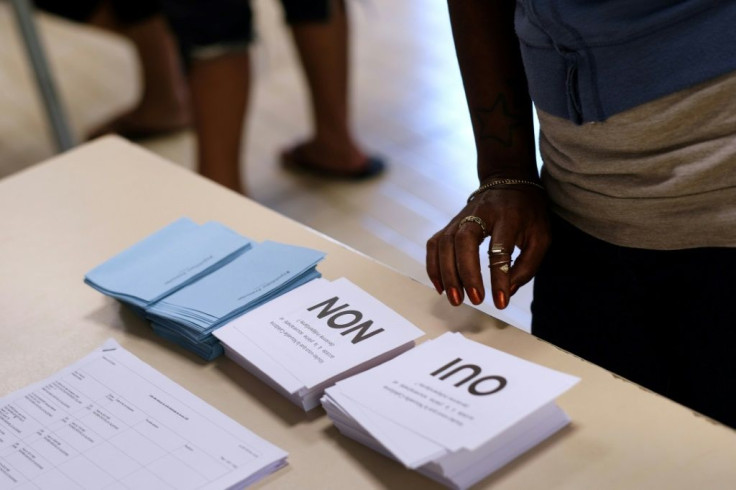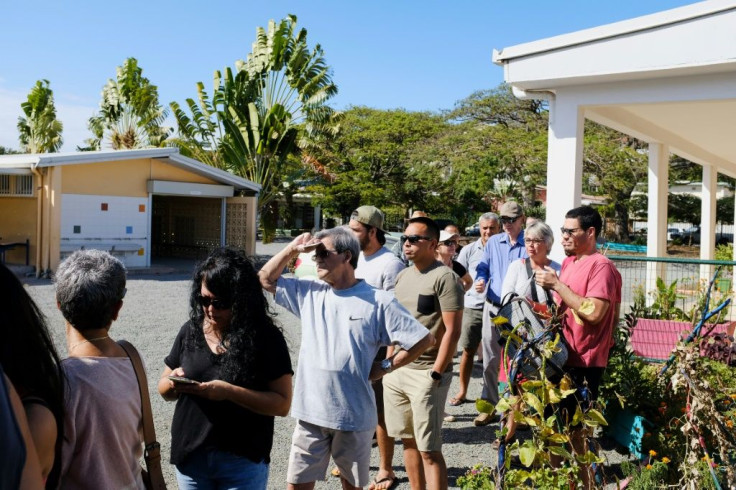French Pacific Outpost Votes In New Independence Poll
The French South Pacific territory of New Caledonia votes in a referendum on independence Sunday, with voters expected to reject breaking away from France's control after almost 170 years despite rising support for the move.
The referendum is part of a carefully negotiated de-colonisation plan agreed in 1998, known as the Noumea Accord, designed to put an end to a murderous conflict between the mostly pro-independence indigenous Kanak population, and the descendants of European settlers known as "Caldoches".
That violence in the 1980s culminated in a bloody, drawn-out hostage crisis in 1988 that saw 19 separatists killed on one side, and six police and special forces on the other.
It will be the second time the tropical archipelago goes to the polls to decide on its fate in two years, after a first referendum in 2018 resulted in the maintenance of the status quo with 56.7 percent of the vote.

But the 2018 result still marked a shift towards pro-independence sympathies, raising campaigners' hopes that this time it could manage to break free.
"Do you want New Caledonia to gain its full sovereignty and become independent?" is the question put to voters.
Political observers say a majority "Yes" to independence is unlikely, although there have been no opinion polls to help provide guidance.
"I would be surprised if the Yes-vote won," said Pierre-Christophe Pantz, a Noumea-based expert in geopolitics.

He said, however, that the gap between both camps could narrow if parts of the tens of thousands of voters who abstained last time can be persuaded to join the independence camp.
If independence is rejected, there is the option of another referendum by 2022.

New Caledonia, situated between Australia and Fiji and sometimes called "The Pebble", has 270,000 inhabitants.
It has been French since 1853 and, after Britain's exit from the European Union, is one of the few remaining EU outposts in the region.
The economy's mainstays are the production of metals, especially nickel of which New Caledonia is a major global producer, tourism and financial support from mainland France.
The French government, from more than 16,000 kilometres (10,000 miles) away, subsidises the territory with around 1.5 billion euros ($1.75 billion) every year, the equivalent of more than 15 percent of New Caledonia's gross domestic product.

If New Caledonia were a country now, it would be in the world's top 30 economies in terms of GDP per capita.
There have been major tensions in the runup to Sunday's vote.
"Today the political atmosphere is toxic and there is no more dialogue," said Philippe Dunoyer, a lawmaker whose party "Caledonia Together" wants to remain French.
A special authorisation allowing the French national flag to be used in campaign spots angered the pro-independence Kanak and Socialist National Liberation Front (FLNKS) which accuses the French government of taking sides against independence.
Loyalist parties, meanwhile, argue that rules restricting the right to vote in the referendum unfairly help the pro-independence campaign.
Voters need to have been resident in New Caledonia continuously for the past 25 years to be eligible to vote, unless they were born there or have Kanak administrative status.
If New Caledonia votes for independence, France would, after a transition period, hand over control.
Paris would also stop paying its yearly subsidy, a frightening prospect for the six remainer parties which have formed a loyalist coalition.
"We cannot live without French money," said Gil Brial, the group's campaign director.
But Charles Washetine, spokesman for the Party of Kanak Liberation (Palika), said "our country is mature enough to be completely in charge of its own affairs".
Whatever the vote outcome, New Caledonians will not have to worry about masks and social distancing that have marred elections elsewhere since the coronavirus pandemic started.
The archipelago has only recorded 27 virus cases since the outbreak, all of which were imported.
They are now cured except for one infected person who is in quarantine.
"We're living completely normal lives and we know how lucky we are," Yoanna Wiard, head of human resources at a large local firm, told AFP.
© Copyright AFP 2024. All rights reserved.


















